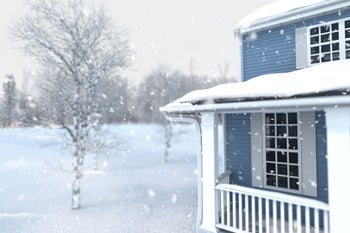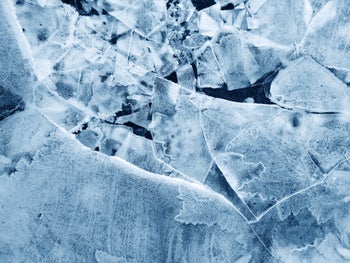How to Get Your Home’s Basement Ready for Winter
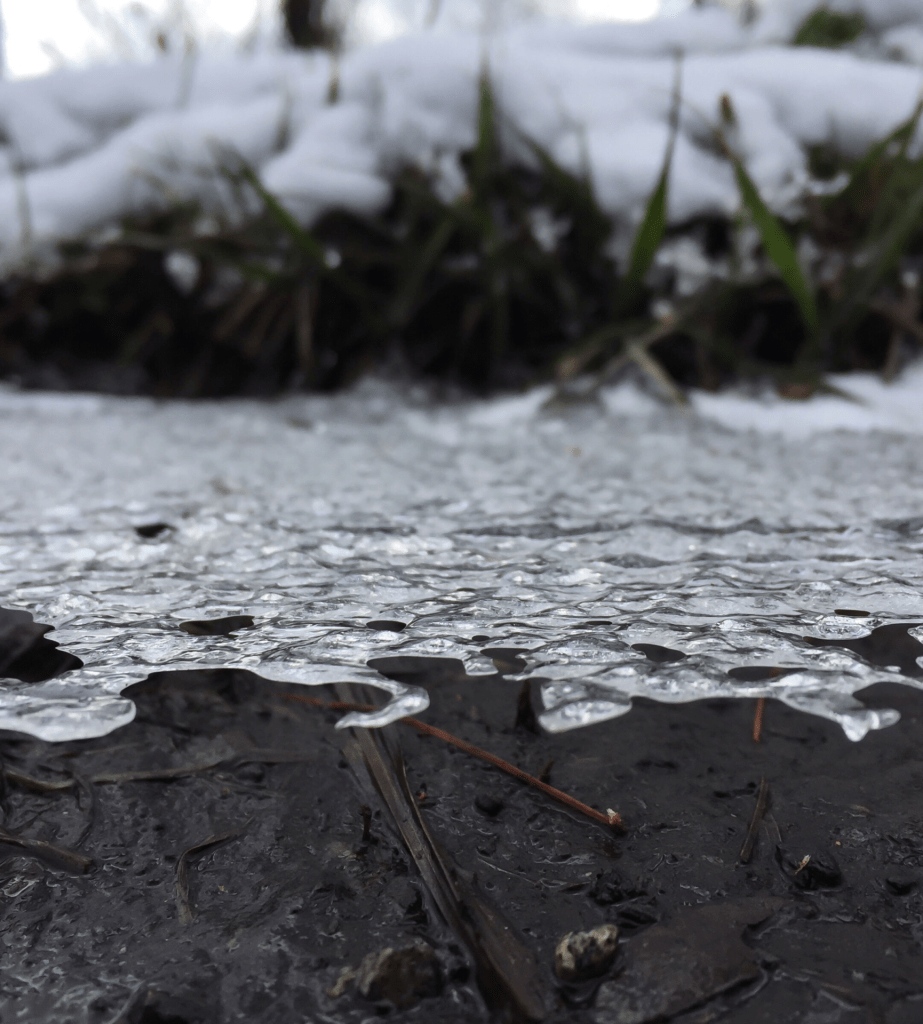
Want to protect your home and your wallet from harsh Canadian winters? By winterizing your basement this fall, you can reduce energy costs, prevent basement leaks and flooding, and minimize pests and mold growth.
It pays to be proactive when it comes to protecting your basement from harsh winter weather. Here are a few key tasks for homeowners across Canada to ensure a warm and dry winter.
1. Check for and Repair Leaks and Cracks
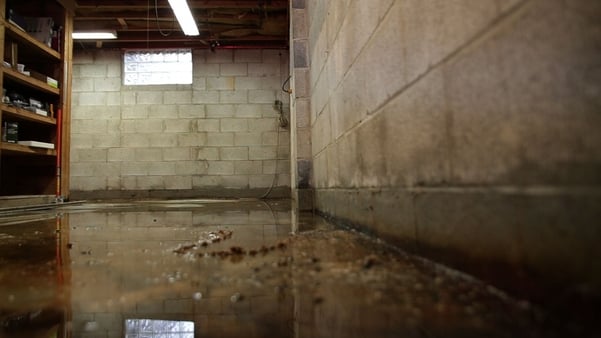
As temperatures drop, it’s crucial to inspect your basement for water leaks. Even small leaks can attract pests, promote mold and mildew growth, and lead to bigger problems. Similarly, cracks in your basement floor or walls can lead to a variety of issues, so it’s important to address them before the start of the season.
If your basement smells musty or you find standing water without an obvious source, you might have a leaky pipe or foundation damage. Addressing small cracks and foundation issues early is vital, as they can worsen with winter weather. Fixing these issues promptly can save you from costly repairs later.
2. Upgrade Waterproofing Measures
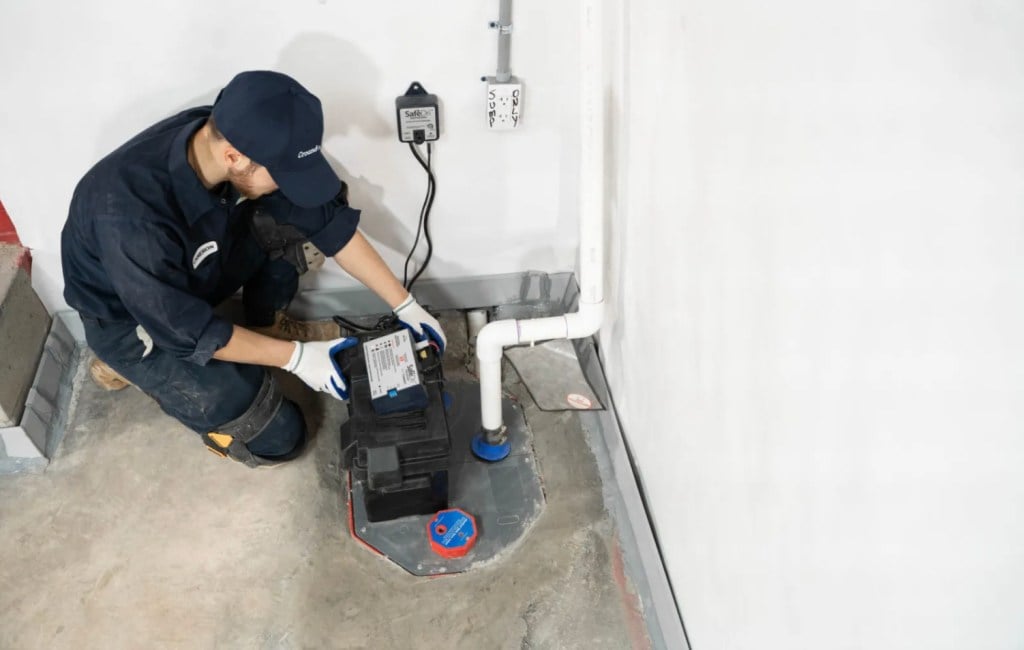
Insulating pipes might not be enough in areas with severe winter weather. Protect your home from flood damage by professionally installing interior drains and a sump pump with a backup battery. Gutters and downspouts should be cleaned and free of debris or excess water before the first freeze of the season.
Additionally, consider winterizing your basement’s drainage capabilities by investing in things like ice-resistant discharge line protectors to ensure reliable performance all year round. These measures can help prevent costly water damage from emergencies.
3. Invest in Insulation
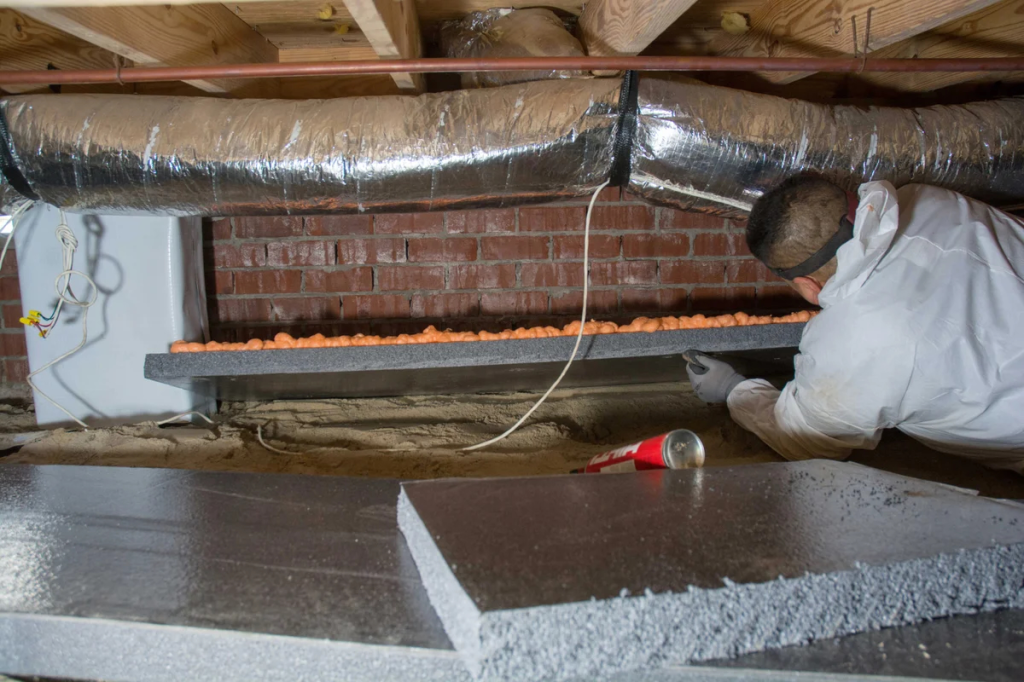
To combat rising heating costs, insulate windows and doors, and seal them with caulk. Check for air leaks by running your hand along windows and doors; if you feel cold air, fill the gaps. Adding curtains and covering basement windows with plastic film can also help retain heat and lower heating bills.
Prevent frozen pipes and potential basement flooding by adding foam insulation to pipes in your basement. Seal exposed ductwork with aluminum tape to retain heat. Upgrading your insulation can protect pipes from freezing and improve temperature control.
How to Make Basement Warmer
These winterization steps can help keep your home in good shape when winter comes, but maintaining a safe and dry environment when the temperature outside is at its lowest can be difficult work. To keep your basement warm during Canadian winters, consider installing a space heater or electric fireplace to provide supplementary heat. Ensure that your HVAC system is in good working order and that your furnace filters are clean to improve heating efficiency.
You might also want to invest in a programmable thermostat, which can help maintain a consistent temperature in your basement while optimizing energy use. Finally, installing a dehumidifier can help manage basement humidity levels, which can make your basement feel warmer and more comfortable during the coldest months. By maintaining healthy temperature and moisture levels in the basement year-round, you can help prepare your home for winter weather.
Why Winterize Your Basement?
Winterizing your basement is crucial to prevent various issues that can arise if your basement leaks or loses structural support during the winter. Here are some of the potential consequences:
- Water Damage: Leaks can lead to extensive water damage, affecting floors, walls, and personal belongings. This can result in costly repairs and replacements.
- Mold and Mildew Growth: Damp conditions promote the growth of mold and mildew, which can cause health issues such as allergies and respiratory problems.
- Pest Infestation: A wet and damp basement can attract pests like rodents and insects seeking warmth and moisture, leading to infestations.
- Foundation Damage: Water seepage can weaken the foundation, causing cracks and structural instability. This can compromise the safety of your entire home.
- Increased Heating Costs: Leaks and poor insulation can allow cold air to enter, making it harder to keep your home warm. This can result in higher energy bills as your heating system works overtime.
- Decreased Property Value: Persistent basement issues can lower the overall value of your home, making it less attractive to potential buyers.
- Electrical Hazards: Water and electricity are a dangerous combination. Leaks can lead to electrical shorts and increase the risk of fire.
- Unpleasant Odors: Standing water and dampness can cause musty odors that permeate your home, making it uncomfortable and uninviting.
By taking steps to winterize your basement, you can avoid these problems and ensure your home remains safe, comfortable, and energy-efficient throughout the winter months.
Choose Groundworks for All Your Basement Needs
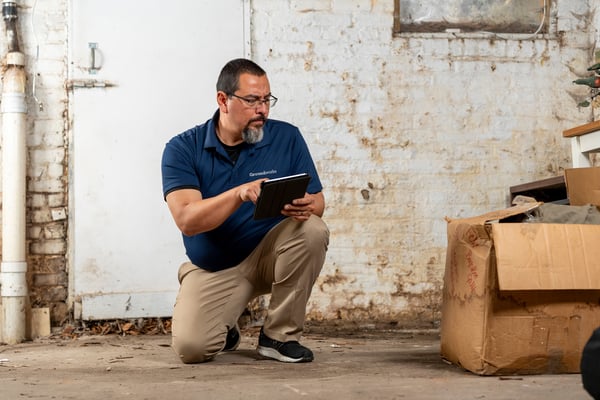
Winterizing your basement is an important part of ensuring a safe, healthy, and happy home this winter. But if you find yourself facing an untimely leak or a cracked basement wall, don’t face it alone.
At Groundworks, we have the knowledge and the solutions to keep your basement dry, no matter how bad the weather gets. Contact us today for a free inspection.
Winterization FAQs
Subtitle
Basements can leak at any time of the year. However, the risk increases during periods of heavy rain, such as in spring, during rapid snowmelt, or after significant weather events. Prolonged rainy seasons also heighten the likelihood of water problems.
Absolutely not. Basement water damage impacts your home and family’s safety. It only worsens with time, presenting further dangers and expensive solutions when you do decide to repair the problem. The easiest way to protect your home and prevent further damage is with prompt inspection and repair. As soon as you notice something wrong, contact Groundworks for a free inspection and receive a no-obligation repair estimate.
Most homeowner’s insurance policies provide coverage for water damage resulting from events such as burst pipes, sink or bathtub overflows, and leaks from water heaters, dishwashers, or washing machines. However, these policies typically do not cover basement or foundation damage caused by heavy rainfall, storms, mudslides, sinkholes, or underground water seepage. In such cases, separate flood insurance coverage becomes necessary to safeguard against these types of water-related incidents.
